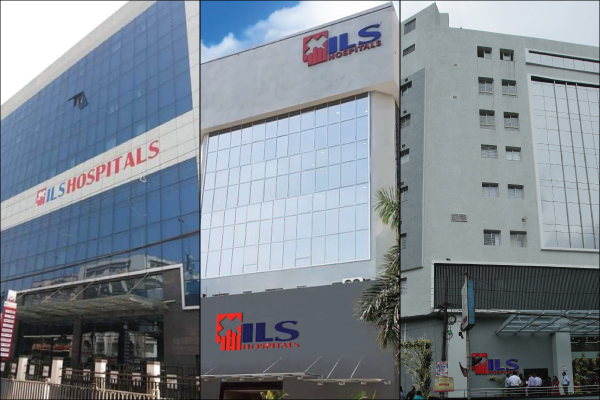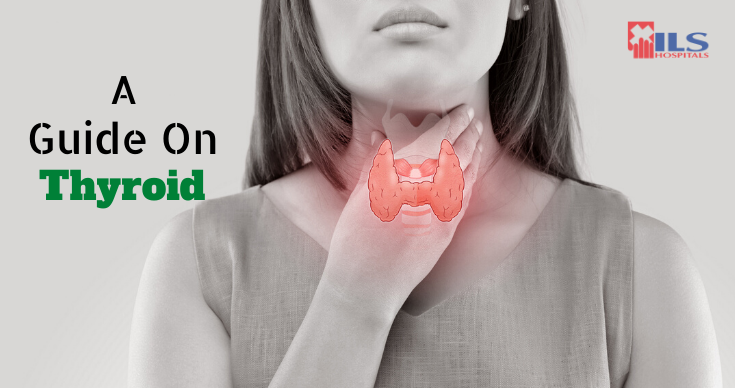Insomnia or sleep-deprivation? Find out
The essence of a healthy lifestyle revolves around eating right and staying physically active.
But in hindsight, people usually tend to discard a sound sleeping schedule, body’s biological clock. According to the National Sleep Foundation (NSF), sleep is extremely essential for our health and wellbeing. Several individuals tend to not get enough sleep and end up suffering from multiple sleep disorders and most of them, go undiagnosed.
Various factors in our day-to-day lifestyle result in detrimental changes in our body and mind and irregular sleep is one of them.
The two types of Sleep:

REM Sleep or Rapid eye movement sleep is a phase that is characterised by random rapid movement of the eyes, accompanied by low muscle tone throughout the body. It is also marked by the ability to dream vividly. It is the state in which restoration of our brain and body functions occurs, including energy conservation and memory consolidation.
Non–REM sleep is marked by 3 phases of sleep that progressively deepens from light sleep, to restful sleep and ultimately, deep sleep.
Here are the three phases in the sleep cycle and REM phase described.
- Phase 1: The duration between being awake and asleep.
- Phase 2: In this phase, our brain waves slow down, body temperature drops and breathing and heart rate become more regular.
- Phase 3: The final and third phase is the deep sleep – our body muscles are relaxed, blood pressure and breathing rate drops. Sleepwalking, bedwetting and nightmares occur during this phase.
- REM Phase: This phase occurs about 90 minutes after we fall asleep, and is the dreaming stage of sleep. During this phase, the brain becomes more active and the body becomes relaxed and immobilised.
Let’s list down a few important issues to be known when there’s lack of sleep
Affects mental health: Sleep plays an important role in thinking and learning. Due to lack of sleep, a human brain can’t function 24/7 without giving it any rest. This eventually affects your mental health and results in fatigue and frustration.
Affects the immune system tremendously: It is said that sleep helps build up an effective immune system. Thus, lack of sleep can prove to be a barrier for your immune system and might eventually make you feel weak.

Affects the overall functioning: Sleep deprivation can lead to severe health issues including heart disease, high blood pressure, diabetes, irregular heartbeat and more.
Causes headaches: Several sleep disturbances like oversleeping, lack of sleep, or a change in your sleep routine often results in a severe headache, which can lead to other ailments.
How can you avoid Sleep Deprivation?
- Avoid caffeine later than early evening
- Take a power nap to boost your energy
- Follow your proper sleep cycle
- Maintain your room temperature and bed hygiene
- Meditate for 20 minutes before bedtime
- Listen to soft music before bed
- Don’t use electronic gadgets 2 hours before bedtime
- Keep your Cortisol in check
- Sleep on good quality bed accessories
- Say NO to smoking, especially at night
The best way to control sleep deprivation is with the right mindset. If you are facing a sleep disorder, keep a check on your sleeping habits by maintaining a sleep diary. Consult our Neurology department or our Pulmonology department, which addresses issues related to sleep disorders. A pulmonologist treats lung diseases and breathing problems associated with sleeping disorders. In case of any emergency, you can contact or visit ILS Hospitals, a multispeciality hospital, known for its excellent healthcare services.
To book an appointment or for any other queries, call ILS Care +91 9051460000 or visit www.ilshospitals.com
7 Ways to Boost your Immunity
Your health is your biggest asset. In the last few months of 2020, many people have come to this realisation the hard way. Health and hygiene have been the top-most priority of most people this year, owing to the pandemic. A healthy person with a strong immune system can defend his body against disease-spreading microorganisms. Giving your immunity that boost requires a balance in your eating habits, exercise, stress levels and depends on various factors like age, genetics and lifestyle choices. Hospitals in Kolkata, even the multispecialty hospitals have been pointing out the benefits of a strong immunity system.
To give your immunity a boost, it is essential to follow a healthy lifestyle and maintain balance and harmony in your body. Here are certain ways to give your immunity that boost and defend any disease-causing germs and viruses.
- Healthy Diet: Rich in nutrients and antioxidants, a healthy and balanced diet provides your body with the fuel needed to keep it going. Adding more fibre, omega-3 fatty acids, probiotics to your diet can help keep your system healthy and fight diseases.
- Limited intake of Sugar: Added sugar contributes to obesity and too much sugar can cause a spike in blood sugar as well as increase the risk of diabetes. Curbing sugar can lead to weight loss which might reduce the risk of heart disease and type 2 diabetes.
- Adequate Sleep: 6-8 hours of sleep is essential for your body to function well. Poor quality sleep is highly linked to increased risk of sickness. Getting adequate rest strengthens your natural immunity and more sleep helps the immune system to fight sickness.
- Moderate Exercise: Regular, moderate exercise like brisk walking, aerobics or sports can help reduce inflammation and improve your immunity. It aids in weight loss and helps improve your metabolism. It leads to quicker regeneration of immunity cells in the body.
- Proper Hydration: While there is no direct link between hydration and your immunity, preventing dehydration is the goal for better health. Dehydration can cause headaches and ailments in the digestive system, kidney or heart which can make your body susceptible to illness.
- Stress Management: Stress levels and anxiety need to be kept in check for better immunity. Prolonged stress can lead to suppression of the immunity system and can imbalances in the cells. Regular exercise, yoga, journaling, meditation or seeking professional help is advised for relieving stress.
- Maintain Hygiene: Washing of hands frequently, especially before eating or after coming back home, wearing clean clothes, eating properly cooked food, wearing a mask in public and taking precautions to avoid infections is recommended.

People with low immunity are more prone to diseases like pneumonia, bronchitis, meningitis and are at higher risk of contracting diseases from bacteria and other microorganisms, including COVID-19. These few changes in your lifestyle can really improve your health. While they do not guarantee your protection from different diseases, they do help you put up a better fight when your body is exposed to disease-causing microorganisms.
If you face any such issues, don’t delay the treatment and fix your appointment with our Pulmonology and Chest Medicine Department. In case of any emergency, contact or visit ILS Hospitals, a multispecialty hospital, known for its excellent healthcare services. To know more, call ILS Care +91 90514 60000 or visit www.ilshospitals.com.
Do You Have Gastritis? Abstain From These Foods
In simple words, gastritis is inflammation that happens near the lining of the stomach. Living with gastritis is not easy. When you’re diagnosed with gastritis by a gastroenterologist, you will have to make a lot of changes in your life style. The biggest mandatory transformation you make is in your diet. If you have gastritis, you need to follow a specific diet for a healthy digestive system.
Today, ILS Hospitals, one of the best hospitals in Kolkata and Agartala will brief you about the foods that you must refrain from if you are suffering from gastritis.
Fried and fatty foods
Fried and fatty foods causes bloating and can even worsen your gastritis. Instead of deep-fry, opt for other healthier cooking mediums – stir-fry, air fry, roasting, steaming, and baking.
Spicy foods
Foods with a lot of chillies and spices are strictly prohibited in a gastritis diet as they worsen yours symptoms. If you have gastritis, ensure that your meals have fewer spices with low use of chillies.
Acidic foods
If you are a food lover which tends to be acidic in nature, then stop doing so. While suffering from gastritis, these foods will cause more harm than good.
Dairy products
Dairy products are beneficial for one’s health. But someone with gastritis should rather avoid the consumption of milk and its by-products as they can aggravate the gastritis symptoms.
Carbonated beverages
Carbonated drinks are not good, more so for gastritis patients. Avoid drinking soda and carbonated beverages.
Caffeinated beverages
Caffeinated beverages, like tea and coffee, should rather be avoided. If you can’t avoid them, then try to cut down the consumption. Switch to healthier alternatives, like green or matcha tea.
Alcoholic beverages
Consumption of excess alcohol or addiction of the same is not good for your health. It would be best if you stop consumption of alcohol completely.
If you face any gastritis related issue, visit ILS Hospitals in Kolkata and Agartala to consult our renowned gastroenterologists.
Want To Be Healthy? Sip A Cup Of Green Tea
After healthy drink of fruit and vegetable juices, another healthy beverage that must become a part of your life has to be green tea.
Green tea has many advantages to the health and it has been observed that the ones who regularly consume green tea are far healthier than the ones who do not. Everyone wants to be healthy. Today, ILS Hospitals, one of the best hospitals in Kolkata and Agartala will tell you some superb health benefits of green tea.
Helps in losing extra pounds
Green tea has been proven to burn fat which further aids in weight loss. If you’re planning to shed extra pounds, drink a cup of green tea twice a day.
Boosts the immune system
A strong immune system ensures that you do not fall sick often. The polyphenols in green tea help in building the immune system.
Good for the heart
Drinking green tea regularly will lower your blood cholesterol and keep the blood pressure under control. If you have hypertension, then consuming green tea is definitely recommended.
Might prevent cancer
Antioxidants destroy free radicals checking oxidative stress. Due to the high content of antioxidants, green tea might help in preventing some types of cancer.
Great for diabetic patients
Green tea has polyphenols and polysaccharides. Both of them aid in lowering the blood sugar levels. Consumption of green tea is beneficial for the ones suffering from diabetes.
Can relieve stress and anxiety
Any herbal tea can reduce stress and anxiety. But still, green tea is highly preferred because of its high l-theanine (amino acid) which helps in alleviating stress and anxiety.
Green tea even helps in detoxifying your body. Make the most of green tea by brewing it the right way. It’s very easy to prepare a cup of refreshing green tea. All you need is boiled water and fresh green tea leaves or tea bags and a good strainer. You can even flavour your green tea with a teaspoon of honey or a few drops of lemon juice.
For any health-related consultations, visit ILS Hospital.
Various Medical Services Offered By ILS Hospitals – Kolkata & Agartala
ILS Group of Hospitals is known for providing affordable medical care to the masses. Our expert healthcare professionals are available round the clock to deliver quality medical consultation, diagnosis, and treatment.
Here’s an insight into some of the essential medical services available at ILS Hospitals in Kolkata and Agartala.

Hernia Treatment
Hernia can be difficult to deal with if not taken care. We provide hernia treatment at our several hospital units – Dum Dum, Salt Lake, Howrah, and Agartala.
Minimally-Invasive/Laparoscopic Surgery
Our healthcare institute stands for laparoscopic surgery. Minimally-invasive surgical procedures have various advantages over traditional general surgeries. A laparoscopic surgery allows you to have minimal surgical incisions, low blood loss, less chance of infections, and an early discharge and recovery.
Weight Loss Surgery
Obesity is a serious problem in our country. So, if the patient fails to lose weight through diet and exercise, there’s an option for weight loss through surgery or bariatric surgery .Our Salt Lake unit is the pioneer of the same.
Joint Replacement
Our hospitals in Kolkata and Agartala provide knee joint replacement to the patients suffering from arthritis and other joint problems.
Diabetes Treatment
Diabetes is a chronic disease and unfortunately, many Indians suffer from diabetes mellitus. If uncontrolled and ignored it becomes fatal. Hence, ILS Hospitals has facilitated diabetes treatment to everyone living in Kolkata and Agartala.
Liver Treatment
Bad Liver conditions have become quite common due to our unhealthy modern lifestyle. If you are suffering from any liver conditions, get proper liver treatment from our renowned liver specialists.
Medical Emergency Services
Medical emergency can happen at any moment. ILS Hospitals is always there to help you during such crisis. Our 24X7 emergency services ensure that you receive prompt and accurate emergency treatment.
Visit ILS Hospitals, one of the best hospitals in Kolkata in Agartala for accurate and effective medical treatment.
How To Be Productive During Your Home Quarantine
Due to COVID-19, the entire country is in lockdown, except for essential services, like hospitals, grocery stores, medicine stores and few more. Since there is no vaccine for Coronavirus as on date, we are compelled to stay inside our homes and practice social distancing to keep the number of cases low.
Home quarantine allows us plenty of time. We can utilize this time to spend time with our family and learn skills to enhance our personality. Today, ILS Hospitals, one of the best hospitals in Kolkata and Agartala will show you some ways through which you can stay productive during this home quarantine.
Learn a new hobby
Sadly, people were not spending enough time on their hobbies. Hobbies started losing its essence. Don’t let that happen, learn a new hobby or give more time to your existing hobby during this home quarantine. You can learn new hobbies, like cooking, sewing, knitting, etc. even by watching online tutorials.
Organize your home
No matter how big or small your home is, it is always beautiful. Since everyone is in the house right now, you can make the use of more muscle power to declutter and organize your home.
Read educational books
Reading is always helpful. If you have children in your home, know that children learn by imitating others. If they see you reading educational books, they will follow suit.
Participate in online classes
Online classes are beneficial for both parents and children. Teach your children through online methods. Opt for online classes to enhance your professional skills for growth in your career.
Stay hygienic and stay safe at home. Listen to the government’s advisories and be a responsible citizen. Remember, health is wealth so take good care of your mental and physical health. For any medical emergency, you can visit ILS Hospitals in Agartala and Kolkata.
How To Take Care Of Your Child’s Health
Parenting is no child’s play. It takes multiple efforts and patience from the parent’s end to raise healthy children. Today’s children are tomorrow’s leaders so taking care of them means ensuring a healthy future of our country.
As a parent, it’s normal to be constantly worried about your kid’s health. So, today ILS Hospitals, the best hospital in Kolkata would like to share some health tips that will ensure your child’s good health. Let’s take a look at them.
1. Serve nutritious food:
Children are picky eaters by nature which can cause problems to the parents and affect the child’s growth and development. Your children deserve adequate nutrition which they will get from fruits, vegetables, pulses, dairy, meat and nuts. Your children do not like eating nutritious foods because they find it boring. Serve healthy meals with a tasty twist. Start with a wholesome breakfast of poha, upma, oats idli, stuffed parantha, boiled eggs, whole-wheat toast and milk. Ensure to pack one fruit of any choice on your kid’s lunch box. For lunch and dinner, you can go for the basic rice, roti, dal, vegetable curries, meat, salad and so on.
2. Feed your child frequently:
Mothers usually stuff their children’s plate with foods in larger quantities. Let your child eat frequent small meals throughout the day. Instead of piling up your kid’s plate with more food allow your child to ask for a second serving. The notion is to ensure that your children eat 4-5 meals a day to get more energy and nutrition.
3. Give them a glass of milk daily:
Give your children a glass of milk daily either during the morning or evening. If your child finds it difficult to fall asleep at night then let them drink milk before going to bed.
4. Encourage good hygiene:
Teach your kids to wash their hands properly and frequently as and when required to prevent infections and diseases.
5. Pay attention to their mental well-being:
Children are sensitive. A loving environment will improve your child’s mental health. Give lots of love and support to your kids.
6. Take them to get routine health checkups:
Regular health checkups are important for your child’s good health. ILS Hospitals value your child’s health and well-being so we offer Child Health Checkup Packages in our hospital units. Our Paediatric Unit works around the clock to ensure your child’s health and mental well-being.
Visit ILS Hospitals, the best hospital in Kolkata and Agartala for optimal medical supervision.
Your Complete Guide On Thyroid
The thyroid is an endocrine gland located in the neck and it resembles the shape of a butterfly.
It secretes thyroid hormones responsible for stimulating metabolism, growth, development and determining the body temperature. An excess or dearth of thyroid hormones result in various thyroid disorders.
Today, ILS Hospitals would discuss some common health-conditions related to the thyroid gland in detail.
Goitre
Goitre is an abnormal swelling of your thyroid gland. It happens due to iodine deficiency or due to thyroid inflammation. Some symptoms of goitre are as follows:
-
Swelling in the neck
-
Breathing difficulties
-
Difficulty in swallowing
-
Coughing.
Sometimes, medication and surgery are recommended for large goitres.
Hypothyroidism
In Hypothyroidism or Hypoactive thyroid gland, your thyroid gland does not produce adequate thyroid hormones due to that it fails to meet the requirements of the body. Women are at a higher risk than men to suffer from Hypothyroidism. Let’s look at some of the symptoms now:
-
Weight gain
-
Menorrhagia or heavy menstrual bleeding
-
Constipation
-
Depression
-
Dry skin
-
Stiff and aching muscles
-
High blood cholesterol
-
Mood swings
-
Fatigue
-
Loss of hair
-
Weakness
-
Sensitivity to cold
-
Swollen face
Hypothyroidism can be regulated by taking oral supplements for the thyroid hormone. Even injections can be prescribed for treating severe hypoactive thyroid gland.
Hyperthyroidism
Hyperthyroidism or Hyperactive thyroid gland is a result of excessive levels of the hormone, thyroxine. People with high iodine levels in the body can also suffer from hyperthyroidism. The signs and symptoms include:
-
Mood swings
-
Increased appetite
-
Nausea and vomiting
-
Palpitations
-
Nervousness
-
Weakness
-
Heat intolerance
-
Frequent bowel movements
-
Swollen thyroid (goitre)
-
Sudden weight loss
-
Shaky hands
-
Insomnia
-
Changes in the menstrual cycle
-
Excessive sweating.
The treatment for Hyperthyroidism includes anti-thyroid medications, radioactive iodine, beta-blockers and even thyroidectomy (partial or complete surgical removal of the thyroid gland).
You can avoid thyroid diseases by following these tips:
1. Avoid Smoking.
2. Do not overindulge in fasting or follow a starvation diet.
3. Stay away from harmful radiations from X-Rays, MRI etc.
4. Visit a medical professional regularly for screening your thyroid.
You can always come to ILS Hospitals in Kolkata or Agartala to consult an experienced endocrinologist.
Important Aspect of Lower G.I. (Colorectal) Diseases And Its Treatments
The digestive tract or the Gastrointestinal (GI) tract comprises of several organs that help with the intake of food, the absorption of nutrients from it and remove the waste from the body.
 The human gut comprises of upper part and a lower part. The lower part consists of most of the small intestine, all of the large intestine, rectum and anus. There can be a number of diseases affecting this lower part, both in innocuous way and in overt way. The trivial symptoms like weakness, weight loss, occasional bleeding with stool are many times ignored resulting in delayed diagnosis and treatment. There may or may not be familial or inherited trait toward developing bowel cancer. Many of these, if diagnosed and treated at an early stage, can be completely cured.
The human gut comprises of upper part and a lower part. The lower part consists of most of the small intestine, all of the large intestine, rectum and anus. There can be a number of diseases affecting this lower part, both in innocuous way and in overt way. The trivial symptoms like weakness, weight loss, occasional bleeding with stool are many times ignored resulting in delayed diagnosis and treatment. There may or may not be familial or inherited trait toward developing bowel cancer. Many of these, if diagnosed and treated at an early stage, can be completely cured.
Following are the few GI diseases –
- Colorectal cancer and benign pathologies
 These cancers can be very silent to start with and may not be detected without careful attention on part of the patients and the doctors together. To make the matter worse, they can spread from one place to another rather quickly. There lies the importance of early screening and thorough check up. Generaly early diagnosis and intervention can provide complete cure from these cancers and a normal life.
These cancers can be very silent to start with and may not be detected without careful attention on part of the patients and the doctors together. To make the matter worse, they can spread from one place to another rather quickly. There lies the importance of early screening and thorough check up. Generaly early diagnosis and intervention can provide complete cure from these cancers and a normal life.
- Benign anorectal pathologies
 Anal fissure, fistula or haemorrhoids (piles) can have severe implication on quality of life. They may be early signs of more sinister pathologies like cancer as well. Proper vigilance and timely treatment can cure most of them and ensure return to a healthy normal life.
Anal fissure, fistula or haemorrhoids (piles) can have severe implication on quality of life. They may be early signs of more sinister pathologies like cancer as well. Proper vigilance and timely treatment can cure most of them and ensure return to a healthy normal life.
- Inflammatory bowel disease, e.g. Crohn’s disease, ulcerative colitis
 This can be a debilitating condition affecting quality of life. It may affect other systems of the body and may even lead to cancer eventually. Combination of medicine and surgery is the only key to treat this problem.
This can be a debilitating condition affecting quality of life. It may affect other systems of the body and may even lead to cancer eventually. Combination of medicine and surgery is the only key to treat this problem.
- Pre-malignant bowel pathologies like polyps or polyposis syndrome
 While most of the polyps are benign, yet some of them may turn out to be malignant and it is difficult to know which one will. That makes regular check up more important to allow early detection and intervention for those cancerous polyps leading to complete cure.
While most of the polyps are benign, yet some of them may turn out to be malignant and it is difficult to know which one will. That makes regular check up more important to allow early detection and intervention for those cancerous polyps leading to complete cure.
- Small intestinal pathologies like GIST (Gastrointestinal Stromal Tumour)
 These tumours can produce non-specific symptoms or bowel obstruction. They are amenable to combined medical and surgical management which can ensure good result.
These tumours can produce non-specific symptoms or bowel obstruction. They are amenable to combined medical and surgical management which can ensure good result.
- Stoma care including management of stoma-related hernias
 Many a times people have to live with a stoma after operation. While most of these people live a perfectly normal life, sometimes these can be complicated with hernia. Timely repair can restore body image and avoid further complications like obstruction, necrosis.
Many a times people have to live with a stoma after operation. While most of these people live a perfectly normal life, sometimes these can be complicated with hernia. Timely repair can restore body image and avoid further complications like obstruction, necrosis.
The Lower G.I. division of ILS Hospitals comprises of a group of highly trained doctors and paramedical personnel. The medical group consists of surgeons, gastroenterologists, oncologists, radiologists and pathologists. The paramedical group has the specialist nurse, stoma care provider and nutritionists. The department has state of the art operating theatre, endoscopy suites and equipment for most modern modes of colorectal and anorectal bowel problems.
Most of the operations are done here by laparoscopic or key-hole surgery, and also by SILS (single incision laparoscopic surgery) or TEMS (Trans-anal Endoscopic Microsurgery). This has been the trend over the last decade which gets people back to their normal life significantly quicker than the conventional surgery.
So, in case you are suffering from any colorectal condition and are looking for some extensive treatment then come at ILS Hospitals now in order to get the best, advanced treatment under the guidance of our eminent doctors.
 Dr Atindriya Biswas, a renowned laparoscopic colorectal surgeon lends his hands to support and realize this vision to establish and run colorectal service at ILS Hospitals. Dr. Biswas has been extensively trained in India and UK. He has been a surgical consultant in UK centers and some of the apex Indian institutes like Apollo Gleneagles Hospital and Tata Medical Center. He performs most of the procedures by laparoscopy or endoscopy.
Dr Atindriya Biswas, a renowned laparoscopic colorectal surgeon lends his hands to support and realize this vision to establish and run colorectal service at ILS Hospitals. Dr. Biswas has been extensively trained in India and UK. He has been a surgical consultant in UK centers and some of the apex Indian institutes like Apollo Gleneagles Hospital and Tata Medical Center. He performs most of the procedures by laparoscopy or endoscopy.
Call: ILS Hospitals Salt Lake: 033-40206500 | Dumdum: 033-40315000
Make Faster Recovery And Wear Anything Confidently After Minimally Invasive Gynecological Surgery
Being a woman is hard in many aspects. You go through many phases in life and nurture not only yourself but also the lives of your loved ones. But when it comes to your health, many women are not even aware or concerned about it unless it becomes too severe. Many illnesses loom over women, particularly that require gynecological surgery. Many gynecologists in Kolkata often find that a lot of women do not prefer to undergo surgery and look for oral medicinal treatment instead even if a surgery is vital for them. There are 2 main reasons for the same, they assume –
- It will be painful and need much recovery time and they will not be able to fulfill their duties in personal and professional lives.
- It will leave big scares in their abdominal or pelvic region and thereby will make it look unattractive.
Today we will focus on the Minimally Invasive Gynecological Surgery (MIGS) and how it overcomes the Drawbacks of Open Surgery.
Gynecological surgery implies surgical treatment of the organs in the female reproductive system. It is done to address problems like uterine inconsistency, infertility, removing tumors (both benign and malignant) and carry out procedures like hysterectomy or tubal ligation.
Earlier all these procedures were carried out by making a large incision across the abdomen or pelvic region. It used to leave large scares throughout life. Though certain medication can help the stitch marks to fade over time, it still remains distinguishable and thus, many women feel embarrassed to wear sarees and lehengas after surgery.
Modern medical science has the perfect solution for the same, in the form of minimally invasive gynecological surgery. These surgeries are carried out through a few minute incisions made near the abdomen. Some special equipment, camera, and light sources are inserted inside the abdominal or pelvic cavity and the doctor carries out the surgery through the same. Once the procedure is over, the incisions are closed using stitches.
As the surgery does not expose the internal organs, it offers multiple advantages, such as
- Lesser risks of operation such as bleeding, infection, injury to the nearby organs
- Much lesser need for blood transfusion (almost nill)
- Lesser risks after the operation such as swelling and infection of the surgical site
- Less painful
- Early discharge from the hospital
- Faster recovery
- Much early resuming to daily life works
- Better aesthetic look of the abdominal/pelvic region as the procedure is almost scarless
So, in case you too are looking forward to having any gynecological surgery, come at ILS Hospitals, as we offer MIGS for a wide range of gynecological procedure.
For more information visit us now!



















